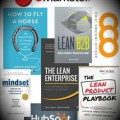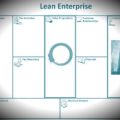Large corporations are on a quest to innovate. In order to do so, they must develop and recruit corporate innovators. Their favorite target, when recruiting outside of the organisation, is the entrepreneur. The entrepreneur is after all the poster child of innovation.
I attended the Montreal Intrapreneurship Conference last month. A few of the speakers present were cautioning enterprises against employing entrepreneurs as corporate innovators.
Their warnings were based on personality traits studies. They were also based on case scenarios of entrepreneurs joining enterprises and not meeting expectations.
 Why are entrepreneurs not performing as corporate innovators?
Why are entrepreneurs not performing as corporate innovators?
I could not help but notice that both the speakers’ presentations and the various studies I read had one commonality. They both treated entrepreneurs and corporate innovators (intrapreneurs) as homogenous categories.
I have worked with a large number of entrepreneurs and corporate innovators, I have also been both in my career. Entrepreneurs are not all alike, just like corporate innovators are not all alike.
Most entrepreneurs will excel during a specific phase of their company lifecycle and need help (sometime a lot of help) during the other phases.
It is the same with corporate innovators. They are found in various roles in large corporations, most often according to the type of innovations they must generate. These various roles require significantly different profiles.
If you hire an entrepreneur with the wrong profile to fill the position, he/she will not meet your expectations.
 The types of entrepreneurs and corporate innovators
The types of entrepreneurs and corporate innovators
There are of course a myriad of variables that can be used to classify entrepreneurs and corporate innovators.
The ones I propose here are chosen in relations to the types of innovations that both entrepreneurs and corporate innovators need to create, as innovation is the common variable between the two groups.
The innovation output levels entrepreneurs need to reach will be highly correlated to the stage their company is at. The closer to the start of their company, the more intensely entrepreneurs need to innovate. This is not to say that entrepreneurs who manage mature companies will not need to innovate. They will simply not need to focus on the same types of innovations, or do so as intensely as when they began their venture.
Large corporations need corporate innovators in order to reach various objectives. These objectives can be categorized by the intensity of innovation required. If intensity of innovation can be classified on a spectrum that ranges from no innovation at all to highly disruptive innovation, it becomes easier to see where different types of entrepreneurs can fit on the innovation scale.
Although it is true that most entrepreneurs are more innovative than the general population, it is usually by necessity and not an innate trait. Depending on what lifecycle stage their company is at, that propensity to innovate and their approach will also vary.
 Evolution of the innovation reflex
Evolution of the innovation reflex
When I started my first business almost every day I had to innovate in a way that was new, at least to me. The process was roughly the same each time.
- I identified the problem and tried to understand it as much as I could (which was often not much given I had so little time)
- I generated ideas as to how to solve the problem (the creative part).
- I then implemented the idea that made the most sense (the work part)
- I failed a lot of the times (the building my resilience part)
- I adjusted my execution until I got it right or started over again with a new idea to solve my problem (the lots and lots more work part).
Starting over meant wasted time, which was costly. The faster my business grew, the costlier it got when I had to start over again. Also, since I had more people working with me, I had to teach them new ways of doing things whenever they would change. This also took time. Hence, unless an old way of doing things really didn’t work at all (which did occur regularly in a fast growth environment), I would stick to what I knew worked, even if something else could have worked better. I had no time to innovate. My overall mindset also shifted as my business started maturing. Not only was I not looking to innovate, I was trying to avoid it as it took time and resources and I wasn’t guaranteed a return on my investment.
More than ten years after I started my first business, I was recruited to work in a large enterprise to create, launch and manage new technological product lines for existing customer bases. By that time, I was very good at working within the confines of existing processes and structures. I was, however, still able to evaluate quickly when it was worth it to kill a process or structure and build new ones. These two skills proved to be some of the most valuable ones in my corporate job.
Had my job been to work at creating disruptive innovations in a corporate lab environment, it would have taken me a while to, not only reactivate and hone the skills I had during my startup phase, but to regain the necessary mindset for intense innovation.
Had I been hired to innovate on existing business processes and structures, I still would not have had the necessary patience and political skills to understand the entire situation before making changes.
The right fit
Hence, large corporations looking to fill innovation related position need to target the right types of entrepreneurs.
My personal experience and observations show that entrepreneurs who excel at the startup phase are a better fit to reach disruptive innovation goals in large corporations[1].
Entrepreneurs who excel at managing high growth phases are a better fit to reach objectives of incremental innovations (such as new product lines for existing markets or developing new markets for existing product lines).
Entrepreneurs who excel at managing mature companies seem a better fit to reach goals of structural or procedural innovations. These types of innovations require careful evaluation and patience. They are often perceived as incremental innovations.
As a corporate recruiter, you fist need to identify the intensity and types of innovations required in the position. Second, you need to find an entrepreneur who has already honed the skills and mindset required for the level and types of innovations required in the position.
My conclusions are based on years of practical experience and observations. They are however not based on scientific research. Hence, validating this hypothesis in scientific experiments may be of help to entrepreneurial programs, entrepreneurs considering a corporate career and large corporations in need of innovation.
[1] As long as the corporation creates a suitable environment which resembles the natural start-up environment.











